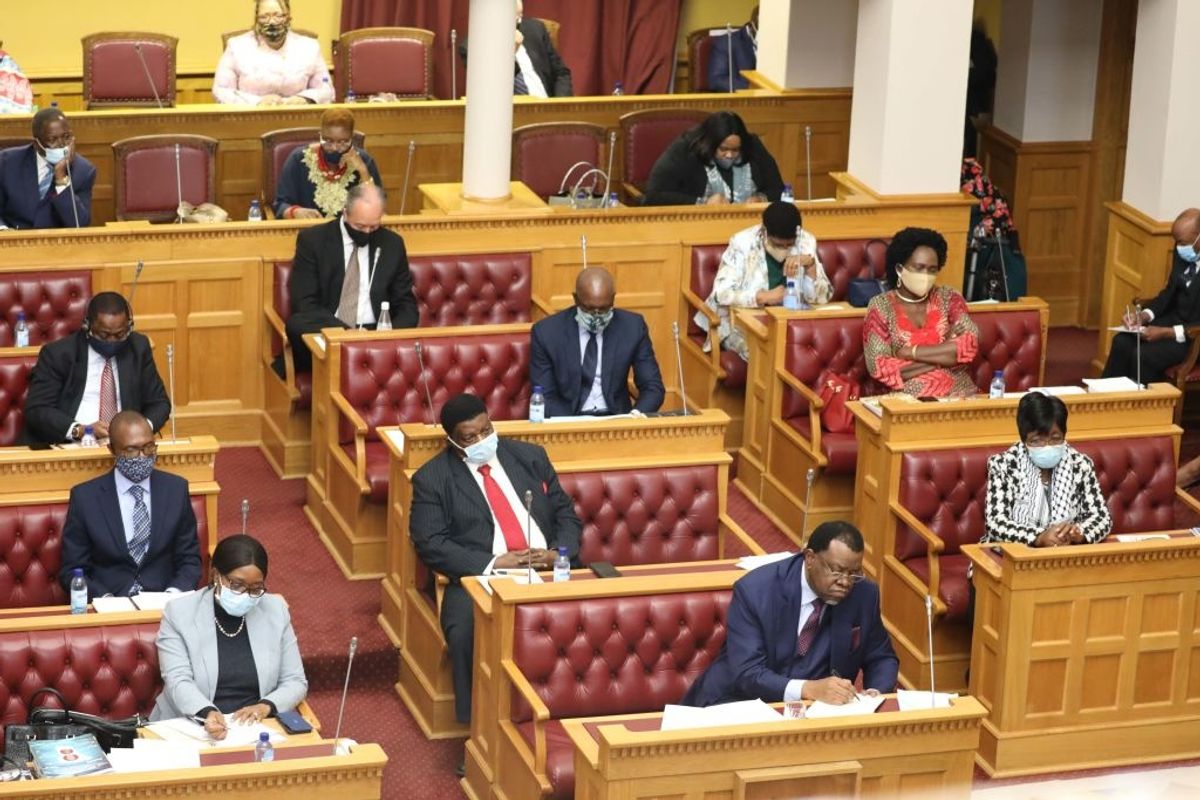Namibian Government Rejects Germany's Offer of 'Reparations'
The Namibian government has rejected the recent offer of 'reparations' from its former German coloniser for the mass killings of the Herero and Nama people.

WINDHOEK, June 4, 2020 -- Members of Namibian parliament listen to President Hage Geingob delivering his state of the nation address in Windhoek, capital of Namibia, on June 4, 2020.
READ: An Apology is Not Enough: Germany, Genocide and the Limits of Reparations for Namibia
The negotiations between Namibia and Germany have been ongoing and began in 2015 after the government of the latter declared that it sought to reconcile with its colonial history and address the systemic injustices of the past.
According to the BBC, however, Namibian President Hage Geingob said in a statement:
"While the Namibian Government agreed to negotiate the issue of redress (reparations), which the German Government consistently referred to as "healing the wounds", Germany has declined to accept the term "reparations". This position, Ambassador Ngavirue explained is based on Germany's refusal to use the term "reparations" in negotiations with the Jews and the State of Israel, with the two parties settling on the term "Wiedergutmachung" (reconciliation and doing good again) in their agreement signed at Luxemburg in 1952...The current offer for reparations made by the German Government remains an outstanding issue and is not acceptable to the Namibian Government."
A special envoy from the Namibian government, led by Zed Ngavirue, will continue to negotiate for a "revised offer".
Last year, the German government announced that they would "return 15th-century Portuguese stone cross that has been in their possession since the colonial era, back to its original home in Namibia", writes OkayAfrica's Damola Durosomo. "The cross was a navigation landmark placed on the coastline of present-day Namibia in 1496, before it was taken in the late 17th century under German colonial rule,"according to BBC Africa.
Similarly, a motion was put forward by opposition parties in Tunisia to demand an acknowledgment and apology from France for its colonisation of the country. However, the motion was eventually rejected this year with some officials saying, "We are not going to feed Tunisians with such motions."
- Germany to Return Stolen 15th Century Stone Cross to Namibia ... ›
- 'Stolen Moments' Uncovers the Namibian Music That Apartheid ... ›
- Namibia's Black Vulcanite Speak On Power, Corruption and ... ›
- Namibia's Lioness On Juggling Rapping & Becoming a Doctor ... ›
- Namibians Cast Their Votes in the National Elections Today ... ›
- Namibia's Black Vulcanite Sans Hip Hop's Bravado - OkayAfrica ›
- Namibia Enters Controversial Reparation Deal With Germany Over Colonial Genocide - OkayAfrica ›
- Germany Finally Recognises Namibian Genocide And Offers 1.34 Billion U.S Dollar Development Fund - OkayAfrica ›
- Accra Reparations Conference Sparks Global Dialogue on Redressing Trans-Atlantic Slave Trade Injustices - Okayplayer ›
- Germany Commits €4 Billion for African Green Energy Projects by 2030 - Okayplayer ›
- These Are The Key Faces Shaping Namibia’s Upcoming Elections - Okayplayer ›
- Hopes and Fears of Namibians Ahead of Tomorrow's Elections - Okayplayer ›
- Will Namibia’s Ruling Party Retain Power? - Okayplayer ›

